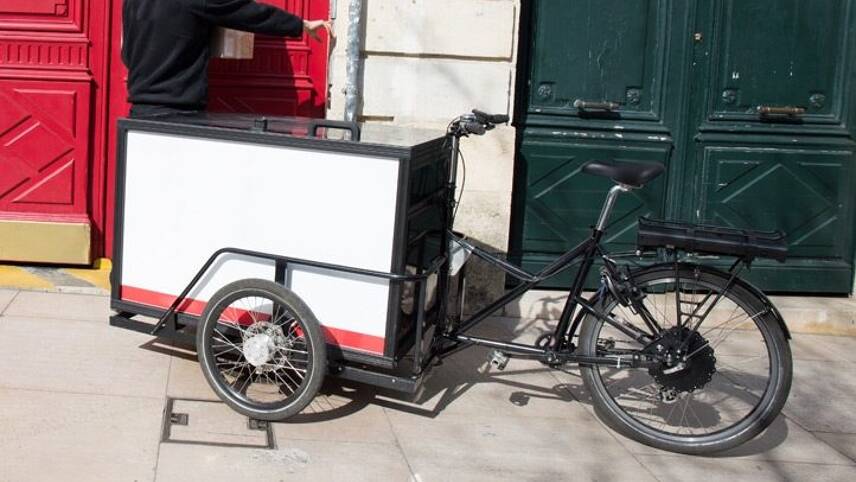Register for free and continue reading
Join our growing army of changemakers and get unlimited access to our premium content

The bikes aim to reduce both emissions and costs
The figures were released by TfL to illustrates the importance of using cargo bikes and low emission transportation for last-mile deliveries to avoid an increase in air pollution. London already has significant issues with air quality – often hitting its annual levels for pollution with
As a result, TfL and its Team London Bridge Business Improvement District have worked with more than 40 local businesses to transition to emission-free cargo bike deliveries since the Ultra Low Emissions Zone (ULEZ) was introduced in April 2019.
Embracing bikes
The Bikes for Business scheme aims to both cut emissions, reduce freight costs, journey times and congestion, with cargo bikes being embraced by large firms such as IKEA, Sainsbury’s and TNT as a last mile option, alongside SMEs and local businesses, including high street butchers, and even dog walkers. Additionally, cargo bikes are being used for the transportation of pathology samples between Guy’s and St Thomas’ Hospital Trust and Great Ormand Street Hospital.
Since the Mayor’s Ultra-Low Emission Zone (ULEZ) was introduced, 50 cargo bike deliveries take place each day in the London Bridge area alone. A sleigh-sized cargo bike has even been created by Team London Bridge, which will deliver 2000 Christmas presents to local charities that work with children in Southwark.
Chief Executive of Team London Bridge, Nadia Broccardo, said: “As the festive season approaches, an increasing number of people get their Christmas shopping delivered to their place of work as it is often more convenient.
!They are also rightly demanding greater customer choice in the availability of carbon-friendly delivery options. This creates a real opportunity for businesses to improve customer satisfaction as well as reduce the environmental impact of delivery vans clogging up the roads and polluting our streets.”
ULEZ
The news follows figures released in October which found that the introduction of ULEZ has contributed to better air quality and a projected fall in carbon emissions.
Data gathered by City Hall has found that there are now 13,500 fewer non-compliant cars entering the zone on an average day, a reduction of 38%. With 77% of vehicles entering the zone now compliant with designated emissions standards, the amount of roadside nitrogen dioxide (NO2) pollution has reduced by 36% from 2017 levels. The analysis estimates that the reduction in NO2 pollution solely attributable to the ULEZ is 29%.
The ULEZ currently covers most of Central London, including the City and Westminster areas, and operates 24 hours a day, seven days a week, 365 days of the year. It will be expanded to cover most of Greater London from October 25 2021, accounting for the entire area between the North and South Circular roads.
Under the ULEZ, diesel vehicles that were registered before 2015 and therefore do not meet Euro 6 standards and petrol cars and vans which were registered before 2006 and therefore do not meet Euro 4 standards will be subject to a £12.50 charge for every day that they enter the marked Zone.
Motorbikes and mopeds which were registered before 2007 and therefore were not produced to Euro 3 standards will also be liable to pay the £12.50, while buses, coaches and lorries will need to meet or exceed Euro 6 standards or pay £100 per day. Failure to pay will result in a hefty penalty charge notice (PCN) of £160, or £80 if paid within 14 days.
James Evison


Please login or Register to leave a comment.